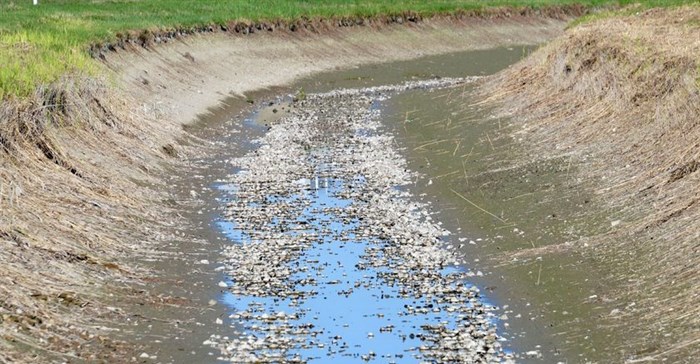
Top stories




ESG & Sustainability#BudgetSpeech2026: SRD grant unchanged, other Sassa social grants see hike
16 hours


More news













ESG & Sustainability
South Africa’s carbon tax should stay: climate scientists explain why











Working under the auspices of World Weather Attribution (WWA), the scientists report that all the climate models used in their study show the likelihood of droughts like the current one going back to 2015, although still very rare, will increase with further warming.
The team looked at data for the Western Cape region which contains the dams and reservoirs providing water for Cape Town and surrounding farmland.
The main factor behind the drought and the consequent water shortage was below-average rainfall rather than surface evaporation caused by high atmospheric temperatures.
“This drought is still a rare event in the current climate, but our results suggest the risk is changing and that it’s important to improve resilience to drought,” said Piotr Wolski, a researcher at the University of Cape Town, co-author of the study. “People’s taps did not run dry and the feared ‘Day Zero’ emergency has been narrowly averted for the moment, due to public’s adherence to water restrictions and at the cost of switching off supplies for irrigation. But this was clearly not a sustainable solution.”
Friederike Otto, lead-author of the study and acting director at the Environmental Change Institute at Oxford University, adds: “These results and the generally increased likelihood of drought is in line with our general understanding of what climate change means for semi-arid regions like Southern Africa; preparing for more of the same would be wise.”
Studies cited by the WWA group say the Western Cape drought was the worst almost since the beginning of the 20th century.
The dams that supply Cape Town are entirely dependent on rainfall, making the system vulnerable to climatic variability and change, although it’s designed to cope with droughts that might occur once every 50 years on average.
Overall, the current crisis was found to be a 1-in-150-year event for the Western Cape region, but – the team believe – more acute local variations particularly affecting the dams’ actual catchment areas could make this at least a 1-in-300 year event for the municipal water supply.
Last year, some 33,000 seasonal farm-labourers lost work because of the drought.
"Cape Town’s drought teaches us that climate change is not a thing of a distant future: it's happening already and impacts us today," says Professor Mark New, director of the African Climate & Development Initiative (ACDI) at the University of Cape Town. "We are running out of time to reduce greenhouse gas emissions and, more importantly, we can no longer postpone taking precautionary and adaptive actions."
Read the full paper here.